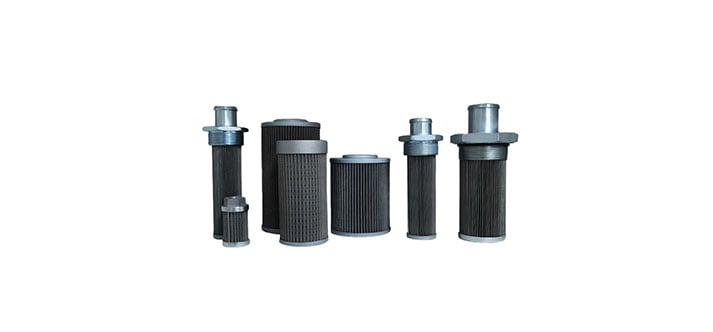Hydraulic filters are critical components in hydraulic systems, designed to remove contaminants from the hydraulic fluid to ensure the system operates smoothly and efficiently. Here are some key points regarding their use and specifications:
1. Types of Hydraulic Filters
- Surface Filters: Remove particles from the surface of the fluid.
- Depth Filters: Trap particles within the filter medium.
- Absolute Filters: Guarantee removal of all particles larger than a specified size.
2. Filtration Ratings
- Micron Rating: Indicates the size of the particles the filter can capture. Common ratings include 5 microns, 10 microns, 25 microns, etc.
- Beta Rating: A ratio comparing the number of particles upstream to the number of particles downstream at a specific particle size. Higher beta ratings indicate better filtration efficiency.
3. Flow Rate of Hydraulic Filters
- The filter should be selected based on the flow rate of the hydraulic system to ensure it can handle the volume of fluid passing through without significant pressure drop.
4. Pressure Drop
- The pressure difference across the filter when fluid passes through it. Lower pressure drops are generally preferred to maintain system efficiency.
5. Compatibility with Hydraulic Fluid
- Ensure the filter material is compatible with the type of hydraulic fluid used in the system (e.g., mineral oil, synthetic oil).
6. Replacement Interval
- Regular maintenance schedules should be followed to replace or clean the filter elements to prevent clogging and maintain performance.
7. Installation Position of Hydraulic Filters
- Return Line Filters: Protect the reservoir from contamination.
- Pressure Line Filters: Protect critical components like pumps and valves.
- Suction Line Filters: Prevent large particles from entering the pump.
8. Environmental Considerations
- The filter should be suitable for the operating environment, considering factors like temperature, humidity, and potential exposure to contaminants.
9. Standards Compliance
- Adhere to relevant standards such as ISO 4572 for filtration performance or ISO 16889 for hydraulic fluid power filters.
10. Manufacturer Specifications
- Always refer to the manufacturer's guidelines for specific installation, operation, and maintenance instructions.
By adhering to these specifications, you can ensure that your hydraulic system remains clean, efficient, and reliable, thereby extending its operational lifespan and reducing maintenance costs.
Quote Inquiry
Contact us!

